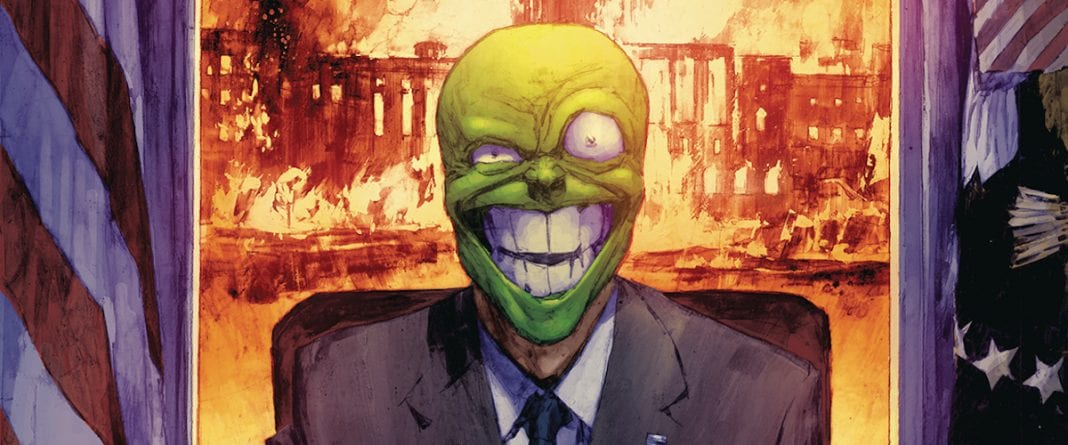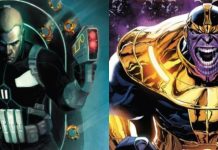Around the conclusion of his critically acclaimed AMC series Halt and Catch Fire, Christopher Cantwell chose to take a diversion from the illustrious world of television and film to the less glamorous but arguably more imaginative realm of comics. While continuing to write scripts for Hollywood, Cantwell co-created several series for Dark Horse Comics. The first, She Could Fly, was published under the Berger Books imprint in 2018. A sequel followed in 2019, the same year he debuted two new series, The Mask: I Pledge Allegiance to the Mask and Everything. The Beat had the opportunity to interview Christopher Cantwell about his various Dark Horse series, his creative process, and how his work has been influenced by modern-day America.
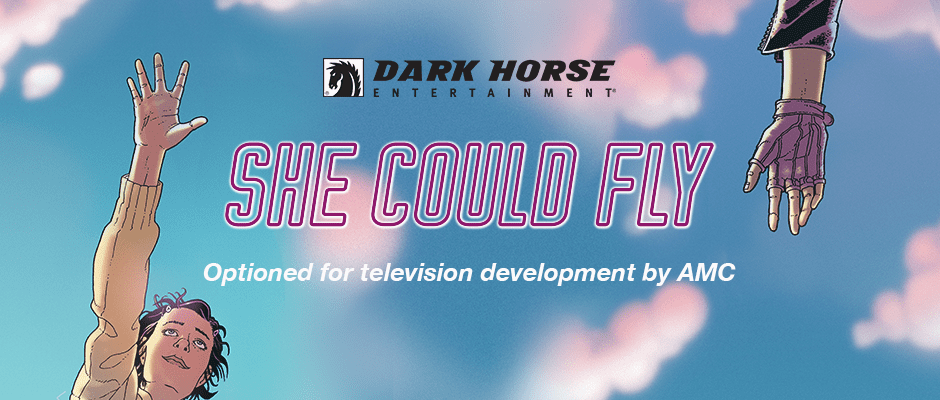
You followed up She Could Fly with not just one but two horror series. Is horror a genre you’ve been eager to jump into?
It hadn’t really occurred to me that both series were in the horror genre. I suppose they are but if anything I came up with the stories first and imagined pretty unflinching depictions of things within them. When drawn those things are quite horrific. I guess The Mask is the most overt horror story of them all because I felt the original books were really upsetting. I just tried to take that to a new level, which with Patric I think we were able to do. I find my other book Everything more creepy… but then again, all of life fits squarely within the horror genre right now. Maybe all stories should be horror stories in order to resonate.
What makes comics an effective medium for conveying horror?
You can write and illustrate hyperbolically scary shit. Also, comics allow the reader to stare at a particularly disturbing tableau for as long as they want to, which is very different from TV or film. The effect of reading a comic is also silent—you experience its synthesis as a full story entirely in your own head—so the imaginative elements a reader has to bring to it make it scarier in my opinion, especially when you put the book down and realize no sound was made in the experience.
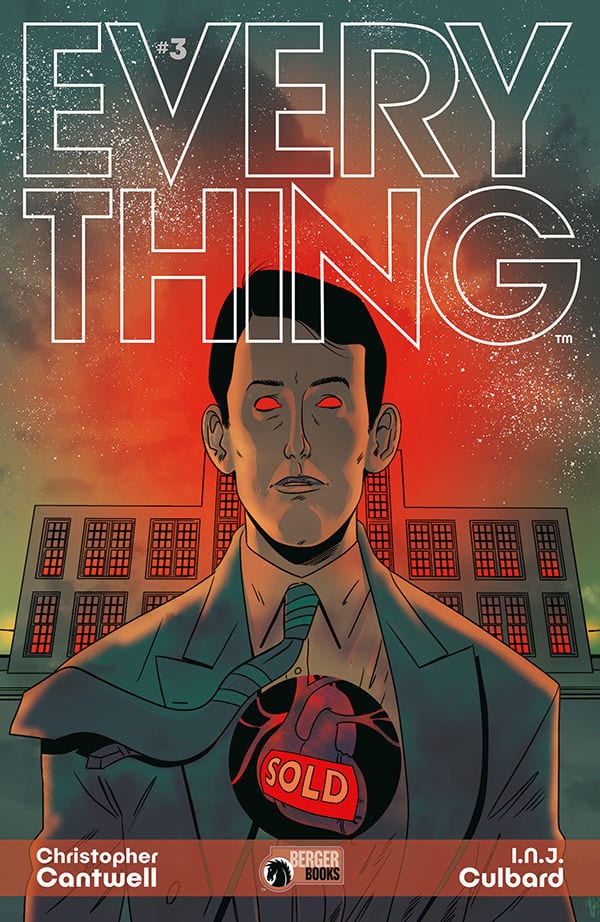
Did you have art styles (or specific artists) in mind when you first started developing Everything and The Mask, or did you figure that out over time?
Karen Berger was very influential when it came to figuring out the art style for Everything. Because of the surreal tone of the book and the fact that on the surface there would be these smiling faces and catalog pages… she had the initial idea to bring a more “harmless” or “friendly” style to the book so that you’d be lulled into a false sense of security. INJ Culbard is very good at lulling you in with his style then really disturbing you with his depictions. I love his work on Everything. For The Mask, we wanted to try and be true to the original underground punk style of the first books which were drawn by Doug Mahnke. But we also wanted a starker edge, as if the fun of the first books had kind of hardened into a really chilling and bleak noir. Patric Reynolds does that to a T. It’s been amazing working with both artists.
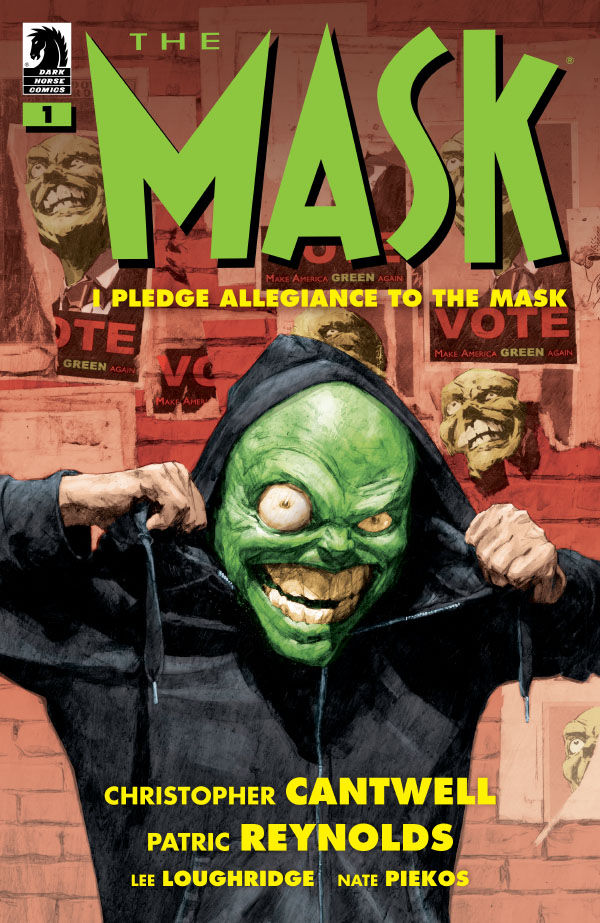
Do you have to go to a dark place to write something as bleak and nihilistic as I Pledge Allegiance to The Mask?
Yes, and the incredible thing is I wrote that book more than a year ago. I wanted to take what was happening in America to what I saw as its darkest conclusion. It’s so sad that here we are in 2020 and it’s infinitely worse than what we could’ve imagined. To me, the book went from being a harbinger, to just accurate, to just being quaint in the face of reality. Sad.
Everything is set in 1980 rather than the modern-day. What made that time period appropriate for the story and its themes?
Everything has to be set in the past in order for the store to be a brick-and-mortar entity. Obviously it’s a precursor for the digital consumer age where places like Amazon are the real Everything store. But to make the story feel visceral, I wanted to have the store be a real physical ominous presence in the town. Plus the town is still straddling that baby boomer Reagan-era innocence, so it can be completely caught off guard by what happens.
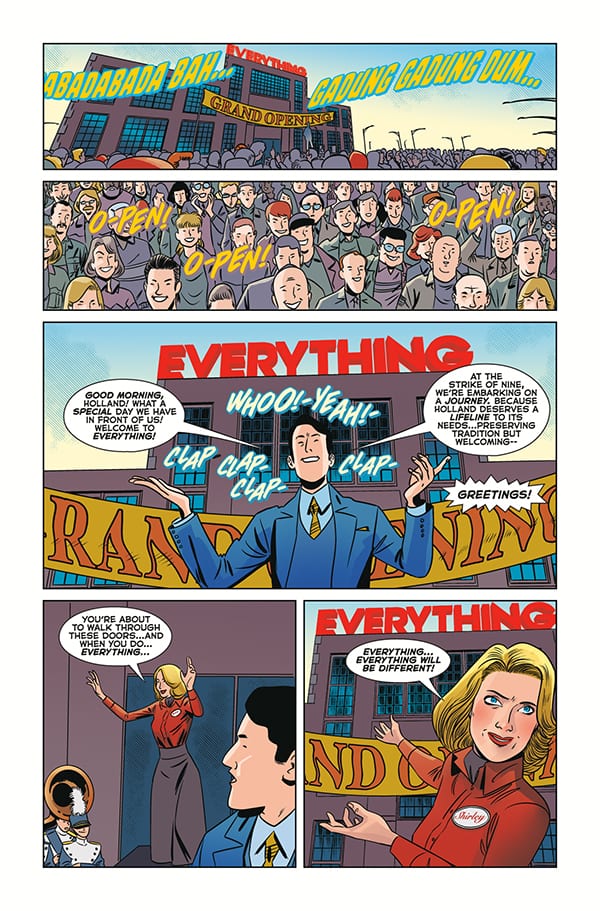
Both stories show a populace giving into groupthink, even if it’s to their own demise. Is that something that’s been top of mind for you lately?
Yes. Everyone in America has become a fucking zombie. They just subscribe to different churches. It makes me want to live in a cave and disappear.
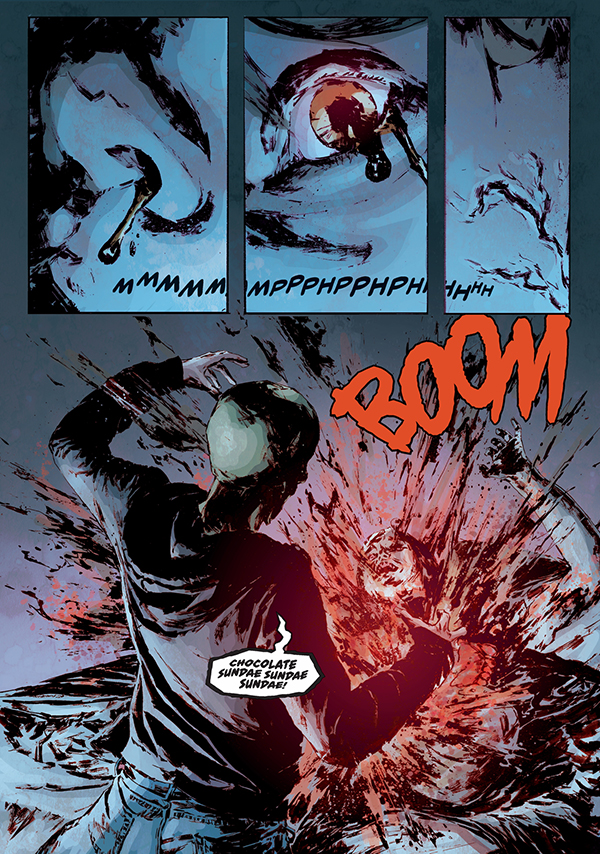
How does pacing a 4-issue series differ from plotting a 5-issue story arc?
Well, with The Mask it boils down to four hard whacks with a 2×4”. Everything is more of a slow burn. I wouldn’t have done that story if we hadn’t been at least guaranteed the full ten-issue run. Obviously the single-issue run has been disrupted by the pandemic. But the second volume will release as a full trade paperback. I do think Everything probably reads best as a full 220-page graphic novel. People seemed frustrated with the creeping pace of the first few issues, and how there was a month between them. I don’t think they’ll feel that way when they can read the entire story at once, because things go truly batshit and there is a big payoff I believe at the end.
Has the creative process felt more intimate working with a small creative team rather than managing a large-scale television production?
Definitely more intimate. The feedback loop is so small so the work feels very potent if perhaps not as fully ironed out. It’s charged with energy. TV and film are too but so much care goes into fixing every small detail and making absolutely everything as perfect as possible. Of course, nothing is perfect. The product is usually gorgeous by the time you finish, but everyone is so exhausted you never want to look at or think of the thing you worked on ever again. With comics, there are these blistering rough edges that feel renegade. I love both processes. One is exhaustive and perfectionist. One is also careful and delicate but the best books—even those published by the big 2—have a spontaneous quality that is so great.
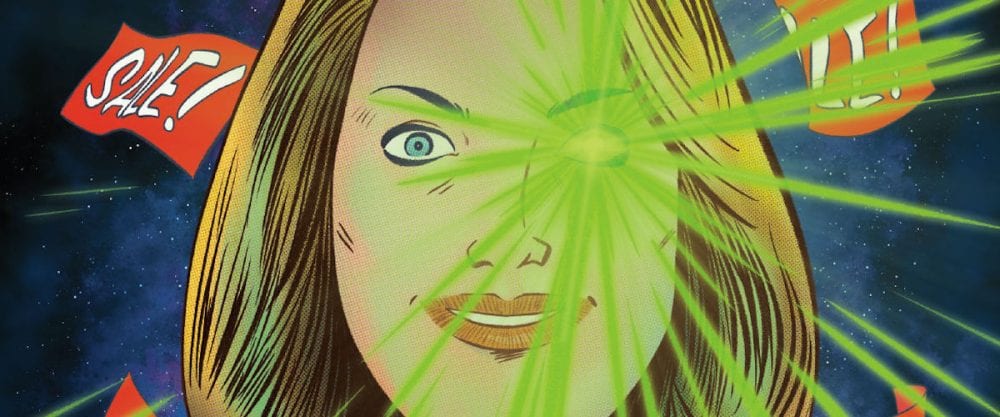
How do you balance your comic book writing with your work in TV and film?
I used to write on the commuter train to and from my tv writers room job. Obviously I can’t do that anymore, and we’re also homeschooling our kids. Scheduling has to be very particular with my wife who also works as a high school teacher (now through Zoom and other insanity). A lot of that time gets sucked up by my pressing TV deadlines. I’m just not as productive at home without that commute time. I knew this was coming as everything began to shut down so I finished Everything’s entire run and Doctor Doom’s current storyline before we all had to fully shelter in place. Those books are fully written and of course now on hiatus (WHICH ALL FUCKING SUCKS) so I don’t even have to do dialogue passes or anything on them. I do have one book I’m still currently writing but we are ahead of schedule on it and its release—and even announcement—are all up in the air because of the bomb that’s gone off in the comics industry. I am also just starting one new book but the timeframe on that is comfortable, and I’m treating it more as a full graphic novel with the imprint anyway.
I am about to start a feature script and there is a TV pitch here or there, too, so… I’ll just have to be really smart about it. Some days in the current climate I wake up wanting to not write anything, or just start drinking at 10:30, or pop a few painkillers and read CDC reports, or even on my best hours meditate and contemplate the Buddhist sentiment of impermanence and no-self.
What I’m saying is that I have to fit writing around teaching children and my full slate of existential dread.
What, if anything, has surprised you about the process of making comics?
It’s even more fun and fulfilling than I imagined it to be as a kid. When one of my comics got furloughed I cried at the breakfast table in front of my wife and kids. I take bad TV / Film news hard too, but it usually takes the form of self-destructive behavior and really jaded anger. With comics, I get to be a kid—not in the stupid platitude way, but in a way that dovetails with what my therapist calls my “healthy regressive tendencies.”
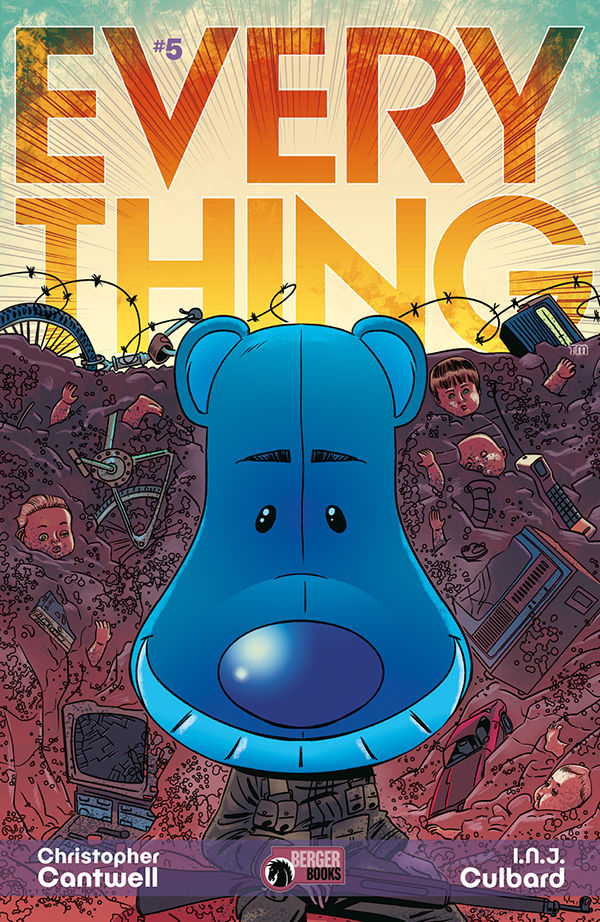
Check out Everything, The Mask: I Pledge Allegiance to The Mask, other Dark Horse comics by Christopher Cantwell now, and keep an eye out for his future projects!


